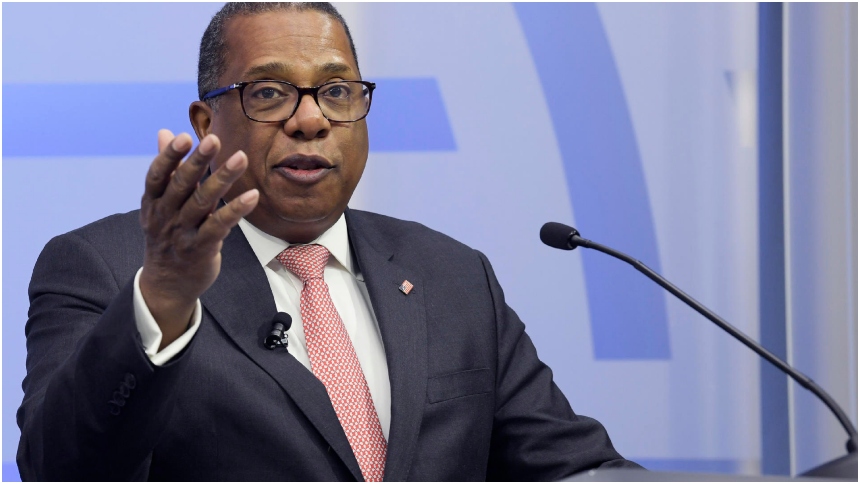Brian Nichols

Brian Nichols is a man who gained notoriety for his role in a series of violent crimes in Atlanta, Georgia, in 2005. His actions sent shockwaves through the community and sparked widespread media attention, raising questions about mental health, criminal justice, and the media’s role in shaping public perception.
Brian Nichols’ Background and Early Life
Brian Nichols was born in 1974 in Atlanta, Georgia. He grew up in a troubled family and had a difficult childhood. He struggled with addiction and mental health issues throughout his life. Nichols’ early life was marked by instability and hardship. He was raised in a family with a history of substance abuse and violence. These factors significantly influenced his development and contributed to his later struggles with mental health. His childhood was characterized by neglect and a lack of stability.
Details of Brian Nichols’ Crimes
On March 9, 2005, Nichols was on trial for rape and kidnapping charges. During a court hearing, he managed to escape from custody. He then embarked on a violent rampage, killing three people: Judge Rowland Barnes, a court reporter, and a sheriff’s deputy. He also wounded a fourth person.
Motives and Circumstances Surrounding Brian Nichols’ Actions
The motives behind Nichols’ actions remain a subject of debate. Some believe that he was driven by a desire for revenge against the justice system for his previous conviction. Others suggest that his mental health issues played a significant role in his violent outburst. The circumstances surrounding his escape and subsequent crimes highlight the vulnerabilities in the criminal justice system and the challenges of managing individuals with mental health problems.
Media Coverage of Brian Nichols’ Case
The media coverage of Brian Nichols’ case was intense and widespread. It generated a significant amount of public interest and raised concerns about the safety of the justice system. The media coverage of Brian Nichols’ case was intense, with constant news updates and in-depth analysis of the events. This coverage, while providing information to the public, also contributed to the sensationalization of the case. The media’s portrayal of Nichols and his crimes influenced public perception and fueled anxieties about crime and safety.
The Impact of the Brian Nichols Case

The Brian Nichols case, a harrowing incident that unfolded in Atlanta in 2005, left an indelible mark on the city and its residents. The case, involving the escape of a murder suspect from a courtroom, the subsequent killing of a judge, and a multi-day manhunt, raised critical questions about security protocols, law enforcement procedures, and the justice system’s ability to protect its citizens.
Impact on the Atlanta Community
The case had a profound impact on the Atlanta community, leaving a lasting sense of fear and vulnerability. The shooting of Judge Rowland Barnes, a respected and well-liked figure, sent shockwaves through the city’s legal and judicial circles. The subsequent manhunt for Nichols, which involved a city-wide lockdown and widespread fear, instilled a heightened sense of insecurity among residents. The case also sparked discussions about racial profiling and police brutality, as Nichols, a Black man, was accused of assaulting a white police officer during his escape.
Changes in Security Protocols and Law Enforcement Procedures
The Brian Nichols case led to significant changes in security protocols and law enforcement procedures in Atlanta and beyond. The incident prompted a review of security measures in courthouses across the state, with many implementing stricter screening procedures, metal detectors, and increased security personnel. Law enforcement agencies also revised their protocols for handling dangerous suspects, focusing on improved communication, coordination, and tactical training.
Legal and Ethical Implications
The case also raised significant legal and ethical implications. The escape of a murder suspect from a courtroom highlighted the vulnerabilities of the justice system and the need for enhanced security measures. The case also sparked debates about the role of mental health in criminal justice, as Nichols had a history of mental illness. The case prompted discussions about the ethical considerations involved in the use of force by law enforcement, particularly in situations involving individuals with mental health challenges.
Timeline of Events
- March 11, 2005: Brian Nichols, a murder suspect, escapes from a courtroom in Atlanta during a hearing. He is accused of killing a woman, Laura Smothers, in a home invasion.
- March 11, 2005: Nichols shoots and kills Judge Rowland Barnes, a court reporter, and a sheriff’s deputy during his escape.
- March 11-13, 2005: A city-wide manhunt for Nichols ensues, with law enforcement agencies conducting extensive searches and implementing a lockdown in the city.
- March 13, 2005: Nichols is apprehended in a home in Atlanta after a standoff with police. He is charged with multiple counts of murder, aggravated assault, and escape.
- March 2005 – Present: Nichols is tried and convicted of all charges against him. He is sentenced to death and remains on death row.
Brian Nichols, Starbucks’ Chief Operating Officer, is a key figure in driving the company’s success. His focus on operational excellence directly impacts the company’s financial performance, which is reflected in the performance of sbux stock. Nichols’ dedication to customer experience and employee engagement ensures a strong foundation for Starbucks’ continued growth, making him a significant factor in the company’s long-term outlook.
Brian Nichols, a veteran Starbucks executive, has been a key figure in the company’s success for years. He’s known for his strategic thinking and leadership, which is evident in his role as Chief Operating Officer. Now, as the company navigates a new era under starbucks new ceo , Nichols’ experience and expertise will be invaluable in ensuring a smooth transition and continued growth.
His deep understanding of the company’s operations and culture will be essential in guiding the company towards a successful future.
